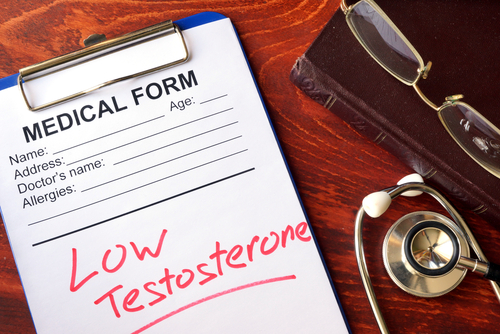Men with very low testosterone levels are less likely to develop prostate cancer, but if they do, chances are they will develop an aggressive form of the disease, according to researchers at the University of Oxford.
The findings were presented in November during the 2017 National Cancer Research Institute (NCRI) Conference, in Liverpool, U.K. The poster presentation was titled, “Low circulating free testosterone is associated with reduced incidence of prostate cancer: A pooled analysis of individual participant data from 20 prospective studies.”
“This is an interesting biological finding that could help us understand how prostate cancer develops and progresses,” Tim Key, PhD, professor at the University of Oxford and co-author of the study, said in a press release.
While prostate cancer needs testosterone to grow, little is known about how its levels influence risk for the disease. One hypothesis is that more testosterone only leads to increased tumor growth until all testosterone receptors are active in the cancer cells. After that, further increases in testosterone do not affect the rate of cancer growth.
To test this hypothesis, researchers at the University of Oxford examined the records of men included in 20 prospective studies conducted between 1959 and 2004. Among the 19,021 participants, 6,933 developed prostate cancer.
Participants were divided into 10 groups based on their testosterone levels, from the lowest to the highest.
Men with the lowest testosterone levels were 21 percent less likely to develop prostate cancer than any other men, the team found. But surprisingly, if men in this group did develop cancer, they were 65 percent more likely to have aggressive forms of the disease.
The findings support the idea that testosterone receptors on prostate cancer cells become saturated, after which further increases in the hormone do not affect the risk for the disease.
“Until now, we didn’t have a clear idea of the role testosterone played in prostate cancer risk. This is the first population study to support the theory that risk is lowered below a certain threshold of the hormone,” Key said.
“Testosterone’s role in prostate cancer’s development has been a hotly debated area of research, so it’s great to see some strong evidence,” said Malcom Mason, MD, professor at Cardiff University, U.K., and prostate cancer expert at Cancer Research UK. “This puts another piece of the jigsaw into place in terms of understanding the biology of what causes prostate cancer.”
A number of prostate cancer treatments rely on stopping testosterone signalling or lowering the hormone’s levels. Understanding how cancer cells respond to testosterone may help develop better therapeutic strategies and improve patient care.
“Hormones play a fundamental role in prostate function and cancer’s development and progression. We know very little about the risk factors for prostate cancer, so this research raises some interesting questions for further research,” said Matt Seymour, MD, professor at the University of Leeds, U.K., and clinical research director of NCRI. “In the future, these results could be important in helping to devise an approach to reducing men’s risk of developing the disease.”

